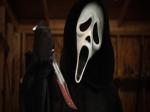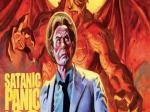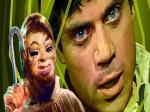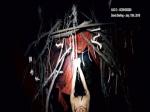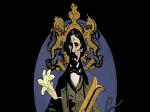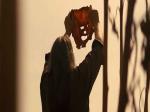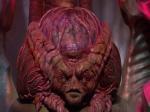Categories

Forbidden Tomes: Exorcising God – William Blake’s Poems from Hell
zombie/films » dailydead » Forbidden Tomes: Exorcising God – William Blake’s Poems from Hell
Posted date: 2017-08-04 21:39:29

When one thinks of classic poetry, one does not expect to encounter horror. No, this is space for romance, for musing, for political diatribes, for art. Maybe this makes it even more exciting when one comes across the macabre and the depraved, in classic writing. There are plenty of dark poems throughout history: Poe’s entire oeuvre, Coleridge’s “The Rime of the Ancient Mariner,” and Goethe’s Faust are just a few. But few poets went so far as to create their own religion through poetry. Not everyone can be as rebellious and wild as William Blake.
My first encounter with Blake was in high school, and it left a bland taste (not that my palate was developed in any regard at that point). That level of academia focuses on his earlier work. Blake’s most oft-taught poem might be “The Tyger,” an ingeniously phrased rhyme examining a fearsome tiger in the jungle. In the poem, Blake wonders how a God who is capable of creating an innocent lamb could also birth such a terrifying predator. This is part of his “Songs of Innocence” and “Songs of Experience”—parallel collections which explore purity in the world and its darkness, respectively. Some of these poems are pleasant, meant for lullabies and children’s rhymes; but others, like “The Tyger,” express the darkness that sparks in his later work.
Those first works don’t compare to the “Proverbs of Hell.” The similarities between this and Anton LaVey’s Eleven Satanic Rules of the Earth are clear, though Blake’s writing contains more depth. Some are simply comedic—“A dead body revenges not injuries”—but others provide legitimate, grounded advice. “The Marriage of Heaven and Hell” also contains other striking, imagined conversations between Blake and divine beings themselves. In one, he envisions a journey to Hell. The descriptions are suitably full of flame and spidery demons, but Blake soon discovers Hell is only frightening if one perceives it to be so. The hatred of Hell is due to Christians’ “conceited notions.” In reality, the fire is sensually pleasing, he may argue, and that pleasure is the goal for which we must strive. The ideas are liberating, really, but it is Blake’s powerful imagery that makes his works so visceral.
His creation myth, “The Book of Urizen,” displays this with immense power. Its surreal tale is full of massive bodily alterations, cosmic nightmares, and abysmal doom—though, of course, these visual flairs aren’t the narrative focus. The central story is far too complex to unpack here, but the language itself is delightfully macabre and baroque. Blake calls upon the Eternals to send him “dark visions of torment,” and he delivers them to us. His epic describes the rise and violent fall of the demon Urizen, who sets out to create a world of his own laws and religion, but he fails to protect this world from Eternity. The Eternal Los traps Urizen in his own world, and sets about creating a human body for him over the course of several painful ages, and this is where Blake’s prowess for corporeal and spiritual nightmares shows its full strength.
Blake’s descriptions of creation are stunningly anatomical. To begin with, Urizen’s world is described as a beating heart—the cosmic contained in the minute. Urizen’s punishments go far beyond any body horror you might find from modern authors like Clive Barker (who cites Blake as an influence). He evokes rivers of blood, crumbling bones, “a vast Spine [that] writh’d in torment.” The poem continues on in devastating form, dictating ages of woe and existential terror as Urizen’s body bursts into existence. Even Los expresses horror at the pain. It’s creation against the will of the created, in which the Eternal entity does not know his cause. What is more frightening than an infinite being doubting itself?
Certainly, Blake is dense and deeply philosophical—T.S. Eliot cited this as his biggest flaw—but his language provides endless delight for seekers of the macabre, with or without his ideas. By standards of the time, Blake’s words are undoubtedly blasphemous. He questions religion without shame and empathizes with the Devil, the greatest agent of “evil” literature has ever known, all with fiercely macabre flair. His writings are ripe for scholarly analysis, but in the meantime, us horror fans can enjoy them as surreal, nasty looks at Hell from one of English literature’s greatest minds.
Tags: None

